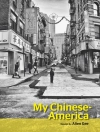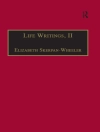At once pervasive and marginal, appealing and repellent, exemplary and atypical, the women of the Bible provoke an assortment of readings across early modern literature. Biblical women in early modern literary culture, 1550–1700 draws attention to the complex ways in which biblical women’s narratives could be reimagined for a variety of rhetorical and religious purposes.
Considering a confessionally diverse range of writers, working across a variety of genres, this volume reveals how women from the Old and New Testaments exhibit an ideological power that frequently exceeds, both in scope and substance, their associated scriptural records. The essays explore how the Bible’s women are fluidly negotiated and diversely redeployed to offer (conflicting) comment on issues including female authority, speech and sexuality, and in discussions of doctrine, confessional politics, exploration and grief. As it explores the rich ideological currency of the Bible’s women in early modern culture, this volume demonstrates that the Bible’s women are persistently difficult to evade.
Tabela de Conteúdo
Introduction: Discovering biblical women in Early Modern literary culture – Victoria Brownlee and Laura Gallagher
PART I: Women and feminine archetypes of the Old Testament
2. Overview: reading Old Testament women in Early Modern England, 1550–1700 – Victoria Brownlee and Laura Gallagher
3. A ‘Paraditian Creature’: Eve and her unsuspecting garden in seventeenth century literature – Elizabeth Hodgson
4. Christian liberty and female rule: exegesis and political controversy in the 1550s – Adrian Streete
5. Wives, fears and foreskins: Early Modern reproach of Zipporah and Michal – Michele Osherow
6. The politics of female supplication in the Book of Esther – Alison Thorne
7. Gender and the inculcation of virtue: the Book of Proverbs in action – Danielle Clarke
PART II: Women and feminine archetypes of the New Testament
8. Overview: reading New Testament women in Early Modern England, 1550–1700 – Victoria Brownlee and Laura Gallagher
9. Christ’s tears and maternal cannibalism in Early Modern London – Beatrice Groves
10. Mary of recusants and reform: literary memory and defloration – Thomas Rist
11. Stabat mater dolorosa: imagining Mary’s grief at the cross – Laura Gallagher
12. St Helena of Britain in the land of the Magdalene: all’s well that ends well – Lisa Hopkins
13. Imagining the enemy: protestant readings of the whore of babylon in Early Modern England, c.1580–1625 – Victoria Brownlee
14. Afterword – Dympna Callaghan
Index
Sobre o autor
Laura Gallagher is a Postdoctoral Teaching Assistant in the School of English at Queen’s University, Belfast, and a Learning Development Assistant at the university’s Learning Development Service












